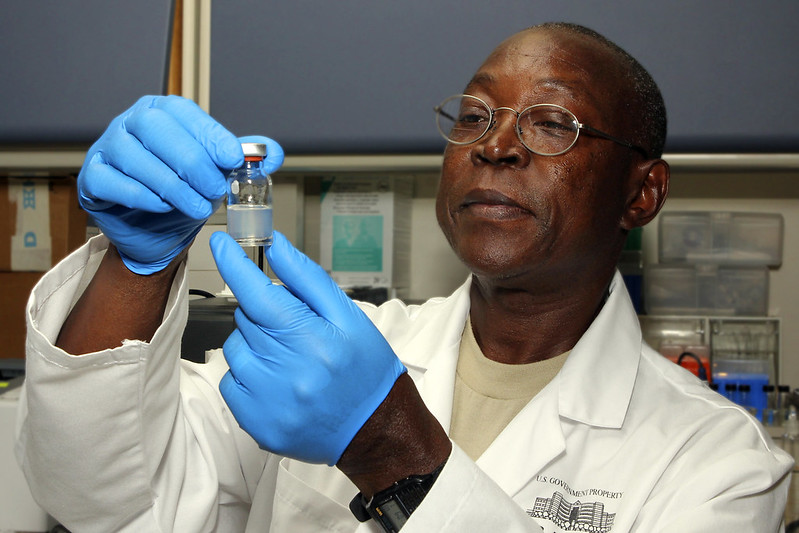COVID-19 Vaccine Inequity and Global Hunger
 COVID-19’s economic devastation has exacerbated the global hunger crisis and poverty, most harshly impacting the most impoverished developing countries. According to the World Food Program USA, the rate of global hunger has doubled, with 272 million people facing hunger today. Contributing to rising rates of hunger are supply chain disruptions, increased food prices and reduced household income due to job losses and slowing business activity. Another indirect contributing factor is COVID-19 vaccine inequity. Since impoverished countries are unable to purchase sufficient COVID-19 vaccines to cover their populations, the COVID-19 virus continues to wreak havoc on developing health systems and struggling economies, intensifying the global hunger crisis.
COVID-19’s economic devastation has exacerbated the global hunger crisis and poverty, most harshly impacting the most impoverished developing countries. According to the World Food Program USA, the rate of global hunger has doubled, with 272 million people facing hunger today. Contributing to rising rates of hunger are supply chain disruptions, increased food prices and reduced household income due to job losses and slowing business activity. Another indirect contributing factor is COVID-19 vaccine inequity. Since impoverished countries are unable to purchase sufficient COVID-19 vaccines to cover their populations, the COVID-19 virus continues to wreak havoc on developing health systems and struggling economies, intensifying the global hunger crisis.
Vaccine Inequality
Across the entire continent of Africa, out of an estimated population of 1.3 billion people, not even 4% of the population has received full doses of vaccines as of mid-September 2021. In stark contrast, wealthier governments such as the U.S. and U.K. have full vaccination rates of 54% and 65% respectively. The World Health Organization’s aim is to achieve a full vaccination rate of 10% in Africa by the close of September 2021, but even this low target seems out of reach at this pace. A majority vaccinated population allows for economic recovery in these nations as the strain of COVID-19 lifts off of health systems and the economy begins to flourish once more.
Of the top 20 countries with the lowest vaccine rates, 17 are African countries and six of those African countries are the most impoverished in the world. If a country has no access to vaccines or means to obtain and administer them, where COVID-19 deaths have abated in other countries, these impoverished countries continue to suffer fatalities and overburdened healthcare systems. Further, this contributes to concerns that the pandemic may endure longer, allowing room for more variants to emerge.
Despite more than half a billion vaccine doses administered across the globe, by the 100th day, the WHO states “[A] lack of supply and inequitable distribution of vaccines remains the biggest threat to ending the acute stage of this pandemic and driving the global recovery.” For as long as the virus continues to circulate, trade and travel disruptions will continue, further delaying economic recovery.
Global Hunger Crisis and Poverty
Oxfam, an organization that fights to end global poverty and injustice, expresses the consistent message from vulnerable populations across countries, “Hunger may kill us before coronavirus” since “deaths from hunger are outpacing the virus.”
In July 2021, the World Food Programme and the Food and Agriculture Organization reported that “conflict, the economic repercussions of COVID-19 and the climate crisis are expected to drive higher levels of acute food insecurity in 23 hunger hot spots over the next four months,” further highlighting that most of the hotspots are in Africa. Due to the pandemic causing economic downturns across the world, the ability of other countries to render aid to those inching closer to famine is not as strong as before.
COVAX and Vaccine Equality
COVAX is a “global initiative that is working with governments and manufacturers to ensure COVID-19 vaccines are available worldwide to both higher-income and lower-income countries.” Through the ACT-Accelerator, COVAX aims to “accelerate the development, production, and equitable access to COVID-19 tests, treatments and vaccines.” By April 2021, COVAX had shipped 38 million COVID-19 vaccine doses to more than 100 countries.
In what has been called a “milestone” by The New York Times, India had given at least one dose of the vaccine to half of its eligible population, with its fully vaccinated population rising from 4% in July 2021 to 15% by the end of August 2021.
With improvements to COVID-19 vaccine inequity and more vaccine multilateralism, the economies of disadvantaged countries can rebound and the global hunger crisis can dissipate as the world recovers.
– Tiffany Pate
Photo: Flickr
